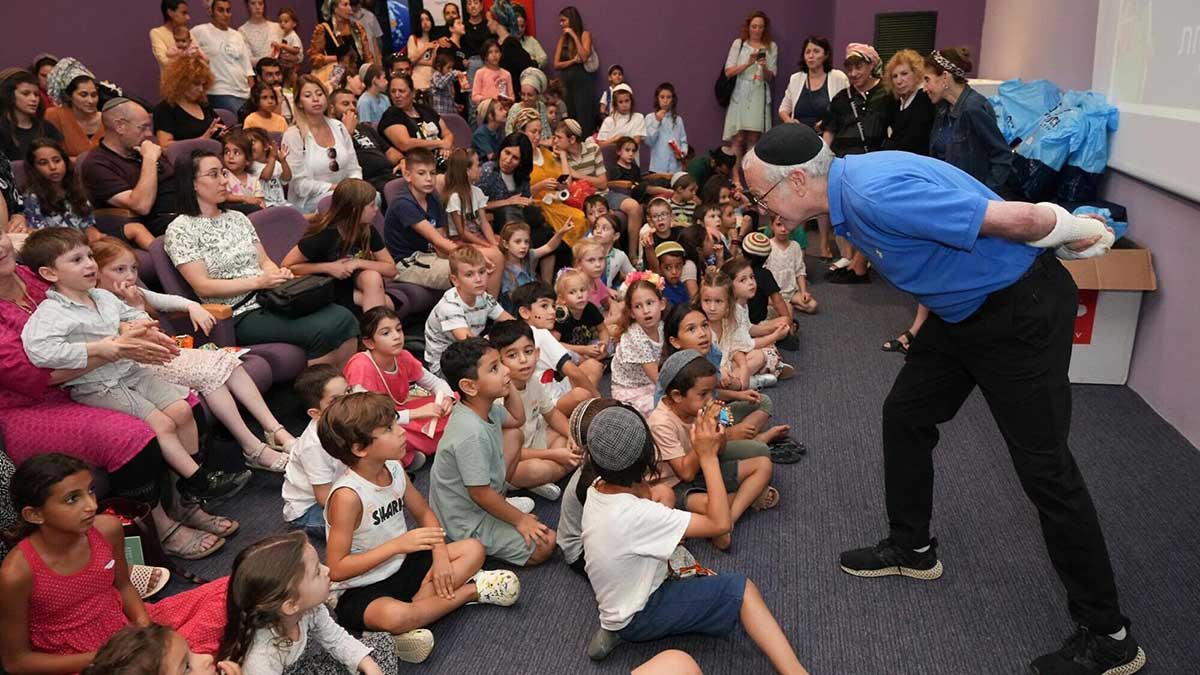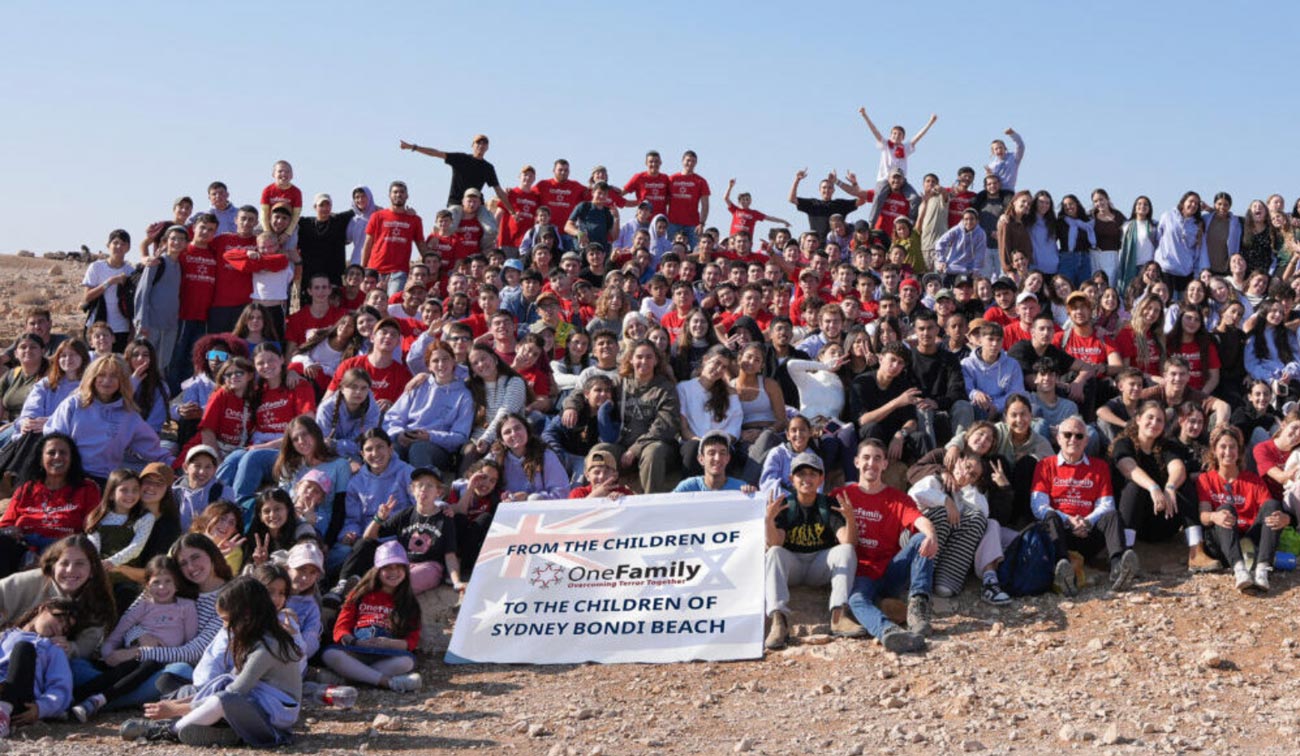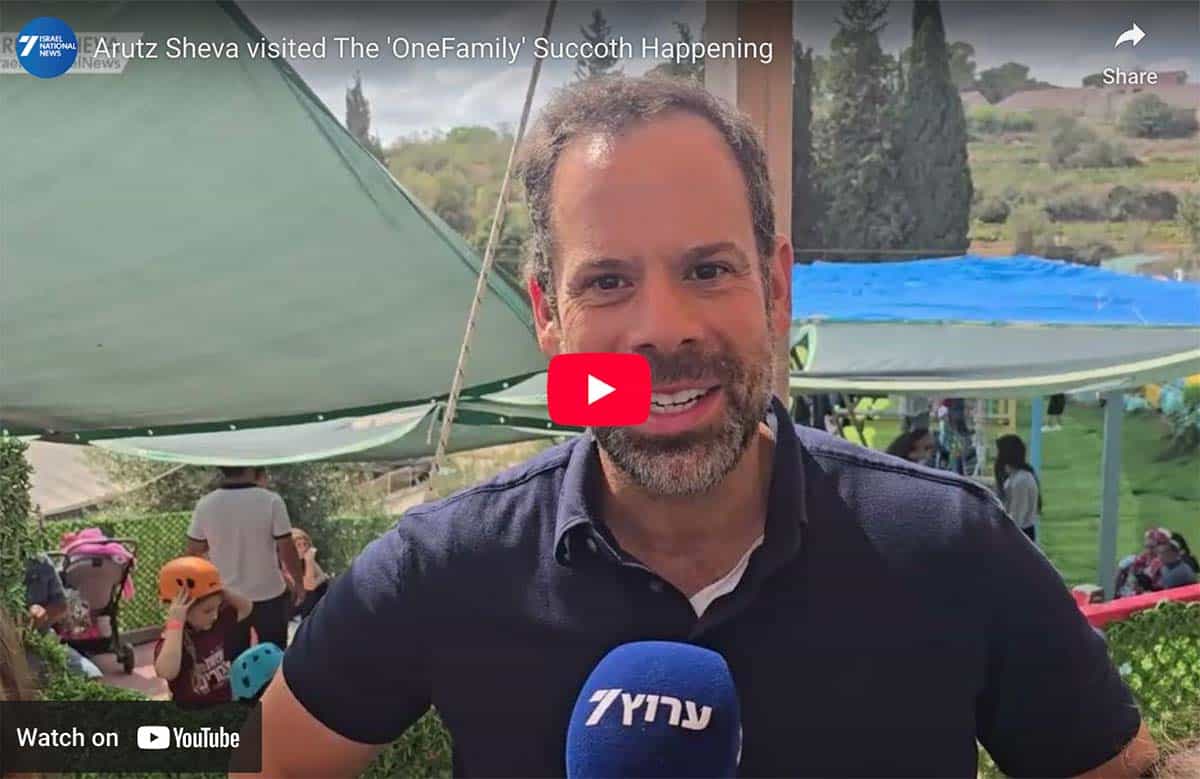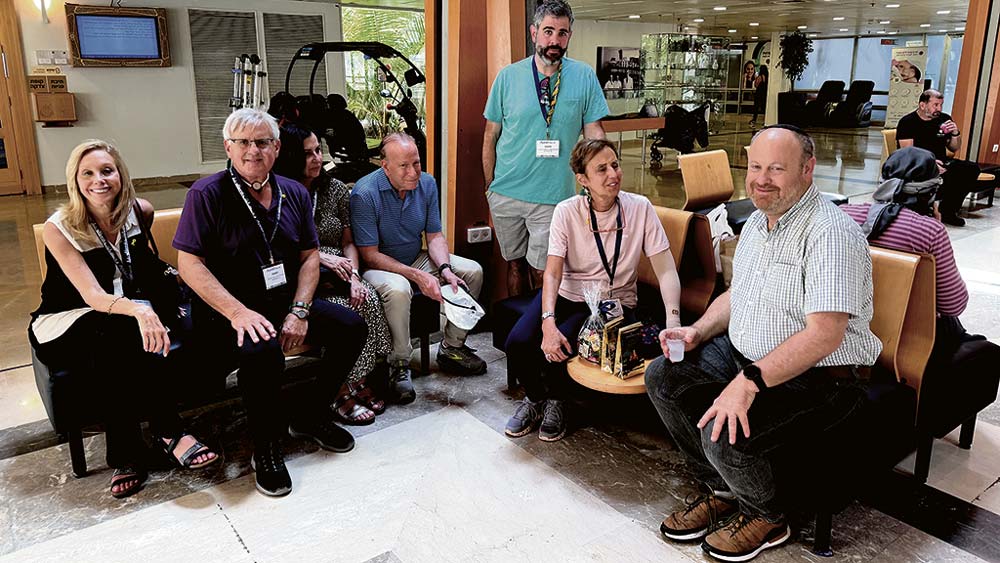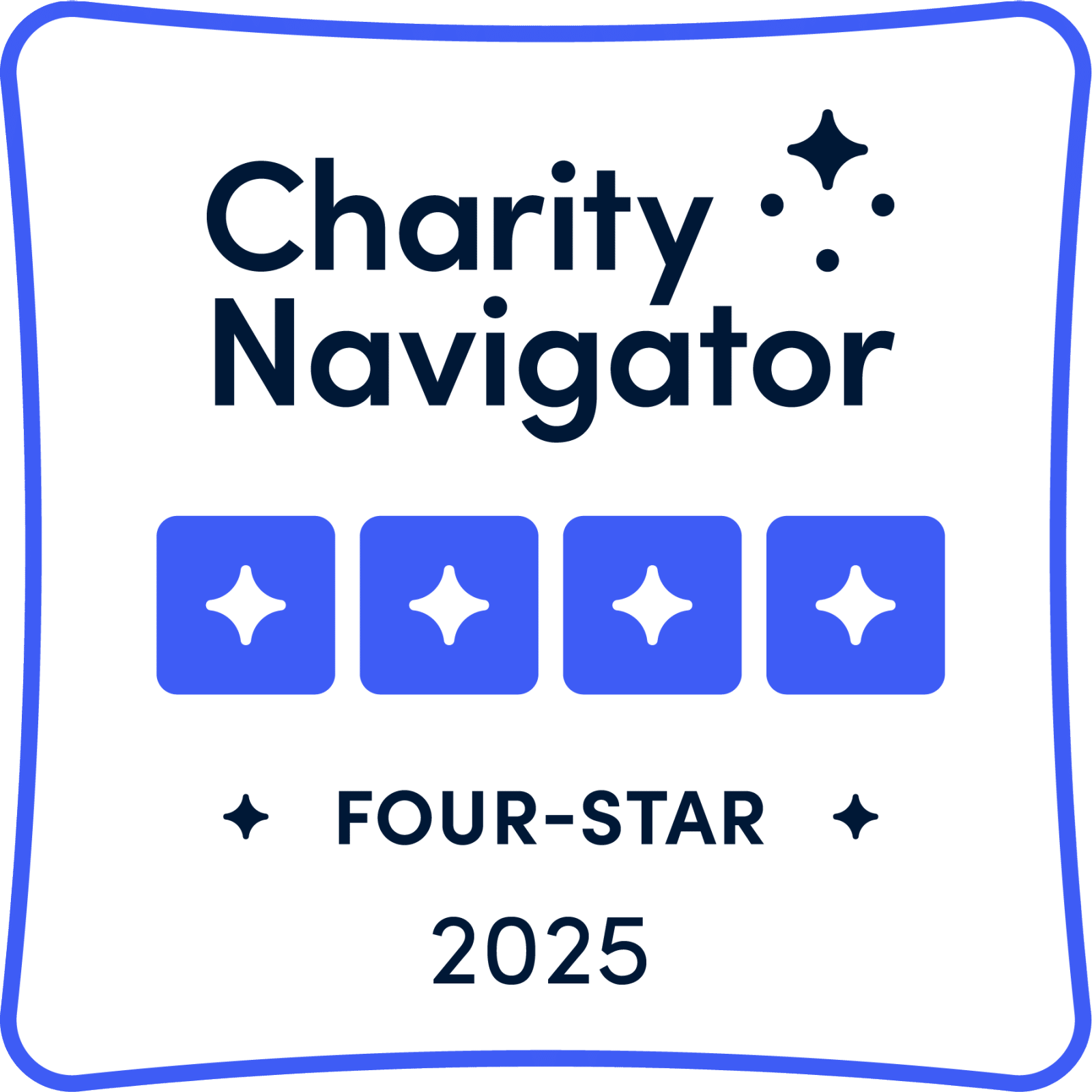table of contents
Published in JNS Original article
When Marc Belzberg, co-founder and board chairman of OneFamily, a Jerusalem-based NGO that supports victims of terror and their families, woke up in his family’s Jerusalem apartment to the sirens that followed news of the United States joining Israel’s war against Iran on Sunday morning, he went straight to the bomb shelter.
“I am in the bomb shelter in Jerusalem right now and getting news of devastating direct hits from Iranian missiles in other parts of Israel,” he told JNS. “I know two things. Just like OneFamily has reached out to every family in Israel, bereaved or wounded by any of Israel’s enemies and has cared for their financial and emotional needs, OneFamily will continue to do so, today and every day in the future.”
Belzberg said he was also thankful to God, U.S. President Donald Trump and Israeli Prime Minister Benjamin (Bibi) Netanyahu for their courageous decisions to strike Iran.
“I am comforted to know that, thanks to God above, to Donald Trump and to Bibi Netanyahu, the ten million people living in Israel are in the safest position that we have been in for many years, because of the destruction of Iran’s nuclear weapons sites,” he said.
“I hope and pray that the coming days will bring joy and celebration to the people of Israel and that no one should be hurt or killed in any retaliatory attacks by our enemies,” he added.
OneFamily
Marc and Chantal Belzberg founded OneFamily in 2001 to provide emotional and financial support and a wide range of group experiences for Israelis who have become victims of terror. At the time, they could not have imagined the extraordinary number of people they would serve and the range of services their organization would be providing in the year 2025.
While the Belzbergs made aliyah from New York, the Canadian-born Marc credits his Belgian-born wife Chantal, who is a board member and volunteer executive director of the NGO’s Israel office, for what he described as her “intuition sensitivity.”
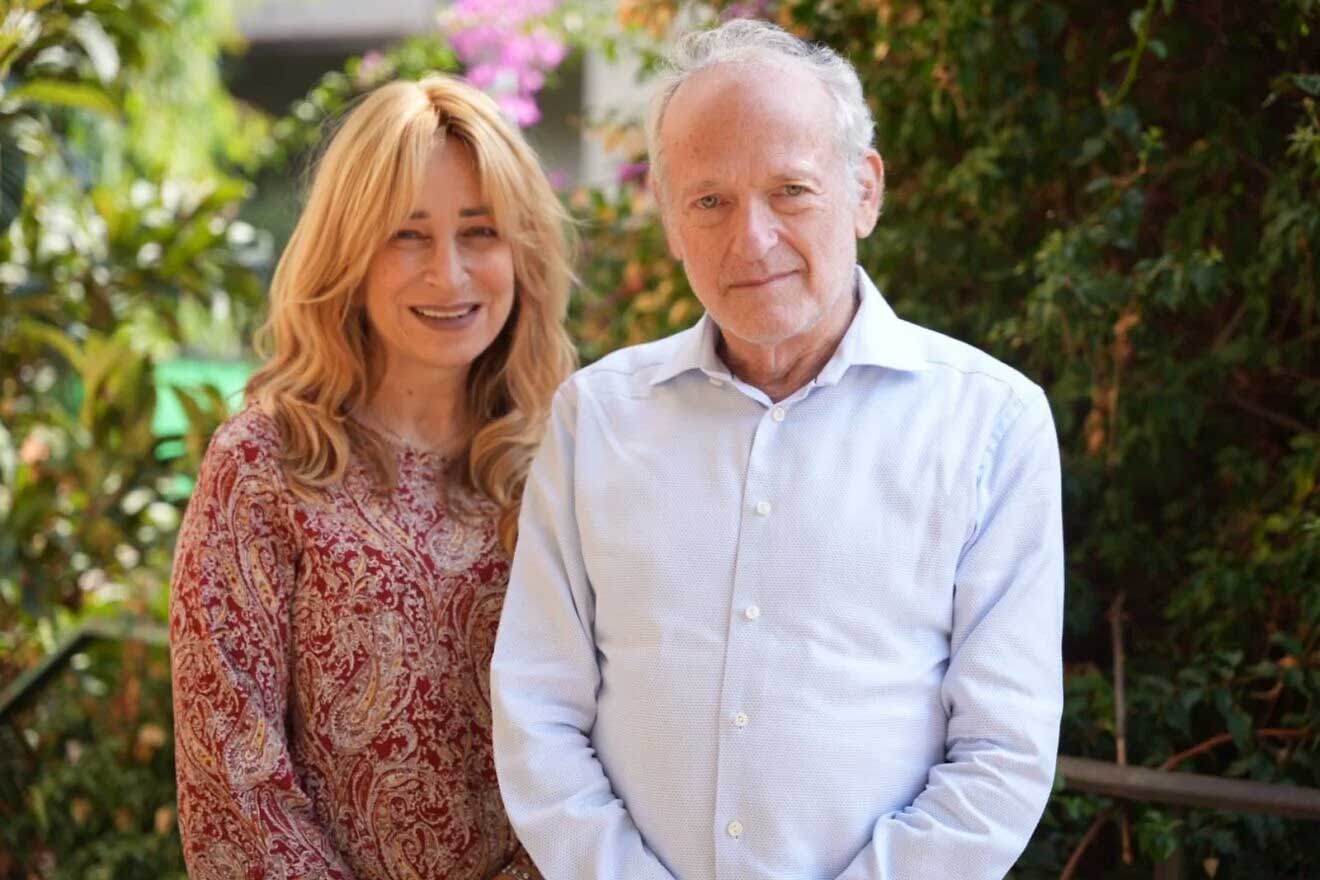
Chantal and Marc Belzberg. Credit: Courtesy of OneFamily.
This, he said, has enabled the organization to tweak programs that are already working well, implement new initiatives and pursue new directions as new situations and challenges arise. OneFamily provides a gentle touch and crucial services to Israelis struggling to cope and move forward with their lives during these trying times.
Belzberg explained in a Zoom interview that, in many ways, One Family adheres to the same principles from the early days of its founding. Both playfully and earnestly, he told JNS, “For the last 20 years, I just gave out hugs, kisses, encouragement and money. I just take care of people.”
Belzberg is particularly proud of the length and depth of each relationship they have nurtured. “We have developed super long-term relationships, like with an 8-year-old whose father was killed in a pigua (terrorist attack) who is now 26. Or with the boys whose father was killed many years ago and are now rabbis teaching the daf yomi (daily page of Talmud) class I attend.”
He noted proudly that “many feel close to me and me to them, so we stay in touch.” While he was still doing his job, he conceded, “It is a little more difficult.”
The Belzbergs created the organization when their daughter Michal was preparing for her bat mitzvah and learned of a 2001 suicide bombing at Jerusalem’s Sbarro pizzeria in which 15 people were killed and 130 wounded. They needed to cancel their planned Jerusalem bat mitzvah and she decided to donate money to victims of terror.
Belzberg offered his perspective on the number of people impacted by terror attacks since just before the organization’s founding until today. “In a little over 20 years, 2,000 people were killed in terror attacks. This time, in a year, 2,000 were killed. And in a day, 1,200 were killed (on Oct. 7, 2023). The fatalities of 20 years have taken place in a year, so the scale is unfathomable and the needs and responsibility had to scale up too.”
Rapid expansion
To date, according to the organization, OneFamily has served nearly 12,000 victims of terror, supported 7,238 families, 1,638 bereaved parents and 1,142 orphans. It reported that 12,000 people have participated in support groups, and that OneFamily has provided some 933 scholarships for students and 78,000 hours of therapy and workshops.
This rapid expansion of services has meant a tripling of staff. The need for an extremely large staff during a period of so many deaths stems from their simple, hands-on and ongoing approach to providing comfort and support.
“On day 2 or 3 of shiva (the seven-day mourning period), someone from OneFamily shows up,” Belzberg said. “We give them a cup with our logo and tell them that, even as people leave after shiva, ‘We will be there forever to help you.’ We then go back after shiva and fill out forms ask about the number of kids they have, see if the fridge is full, see if they have air conditioning, desks, money for blankets, beds, etc. We have given out $100 million in 20 years, over half of which addresses poverty issues.”
Belzerg highlighted the two hallmarks of OneFamily’s work: “Holistic family approach and the forever approach.” He noted that they offer support to the whole family, including grandparents and siblings, and that they are available 24/7, serving as “professional friends.”
He said that, unlike in regular therapy where there are professional boundaries, “here it is the opposite.” Most of the volunteer counselors who work with young children are pre-army 12th graders who “stick with it forever.”
In addition, the organization provides advocacy for and assists in accessing entitlements from government and other sources.
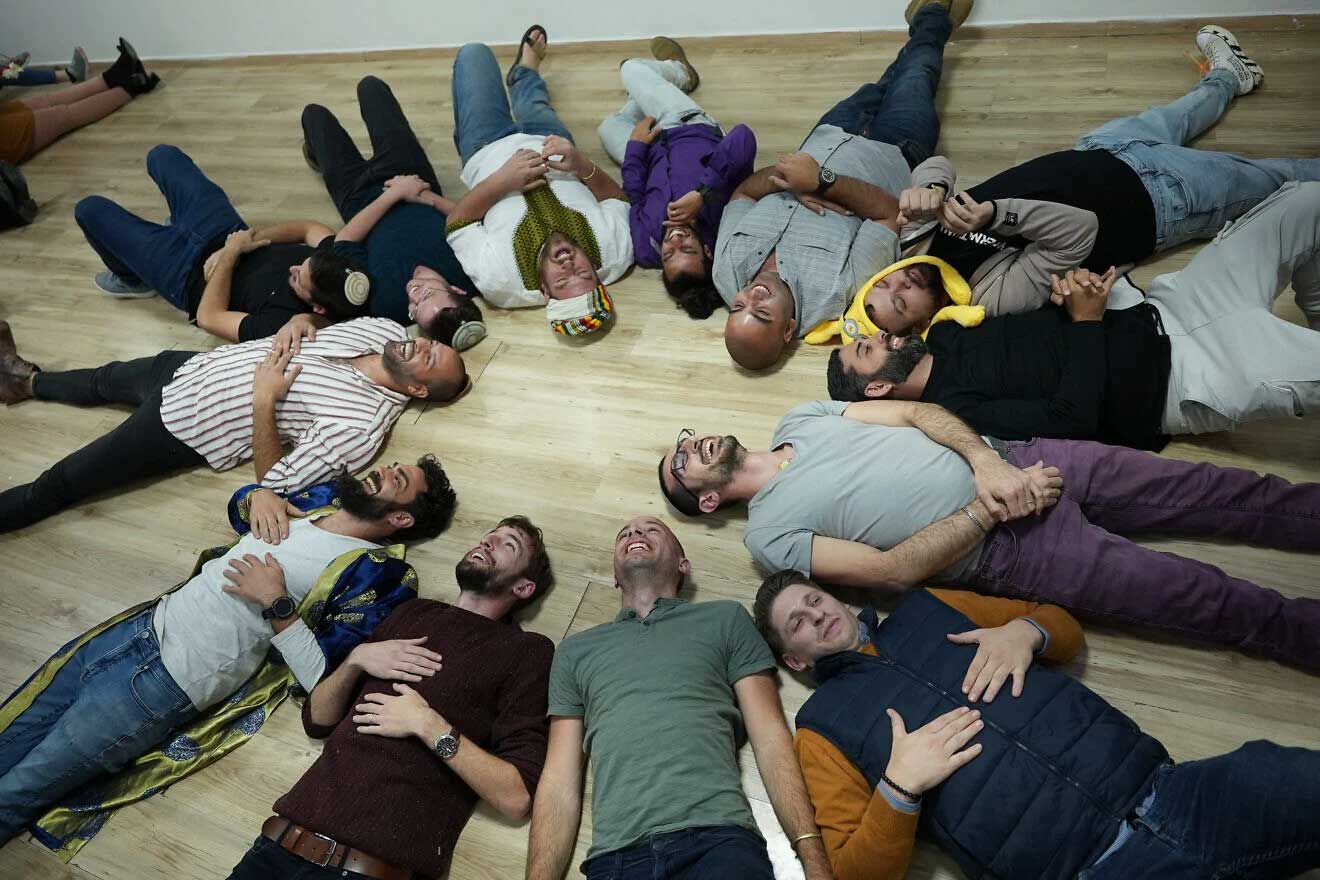
A “laughter workshop” of bereaved young adult siblings that took place at the OneFamily headquarters in Jerusalem. Photo by Meir Pavlovsky.
It also offers ongoing rehabilitation for people dealing with Post-traumatic stress disorder (PTSD). These therapeutic programs offer support to orphans and children, bereaved parents and siblings, widows and widowers and the wounded themselves.
In recent years, the bereaved and wounded have taken trips to such places as Thailand, the Czech Republic and Ethiopia to assist in the healing process. One trip focused specifically on those who lost a sibling in battle or at the Nova Music Festival. Another group went to Sri Lanka, where they surfed until noon then participated in intense group sessions.
A key to such trips is bringing those recently affected by loss and those further along in the process. “On a recent ski trip for those who lost both parents, we had two who lost both parents 20 years ago,” Belzberg said.
Close to home
For the Belzbergs, a recent event in the current war brought their OneFamily and their own family worlds closer together. Their son and two other IDF soldiers were the only ones who were “miraculously unscathed” in an ambush, while four of his comrades were killed and six others wounded.
Belzberg acknowledged that this had been difficult, observing that these are the realities of life in Israel. He stressed that the Belzberg family was not alone in confronting such issues close to home, pointing out that OneFamily even has an English-speaking grandparents group for those who have children and grandchildren killed in battle.
Despite the difficulties of the present moment, Belzberg said, OneFamily continues to focus on the ongoing need for its work “to create bonds” and to help families move forward. He is also pleased that people outside of Israel are taking note and learning from their work.
Chantal Belzberg participated in the June 5-6 “Reshaping Mass Trauma Response: A First of its Kind Conference” in New York City, a joint initiative of Mount Sinai Health System and Tel Aviv Sourasky Medical Center (also known as Ichilov). “She was a superstar!” Marc told JNS.
In her address, Chantal said, “While our story is Israeli, our message is universal: Trauma doesn’t end when the news cycle does. Its wounds are often invisible. And healing must be long-term and human. Because trauma isn’t a single event. It’s a ripple. It touches every part of a person’s life: his identity, his relationships, his family and his future. That’s why our model at OneFamily is built around the whole person— and the whole family.”

